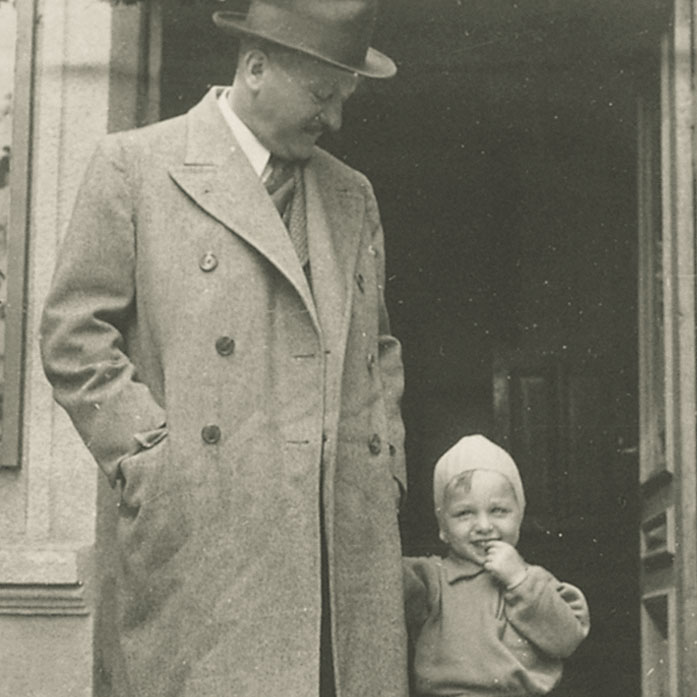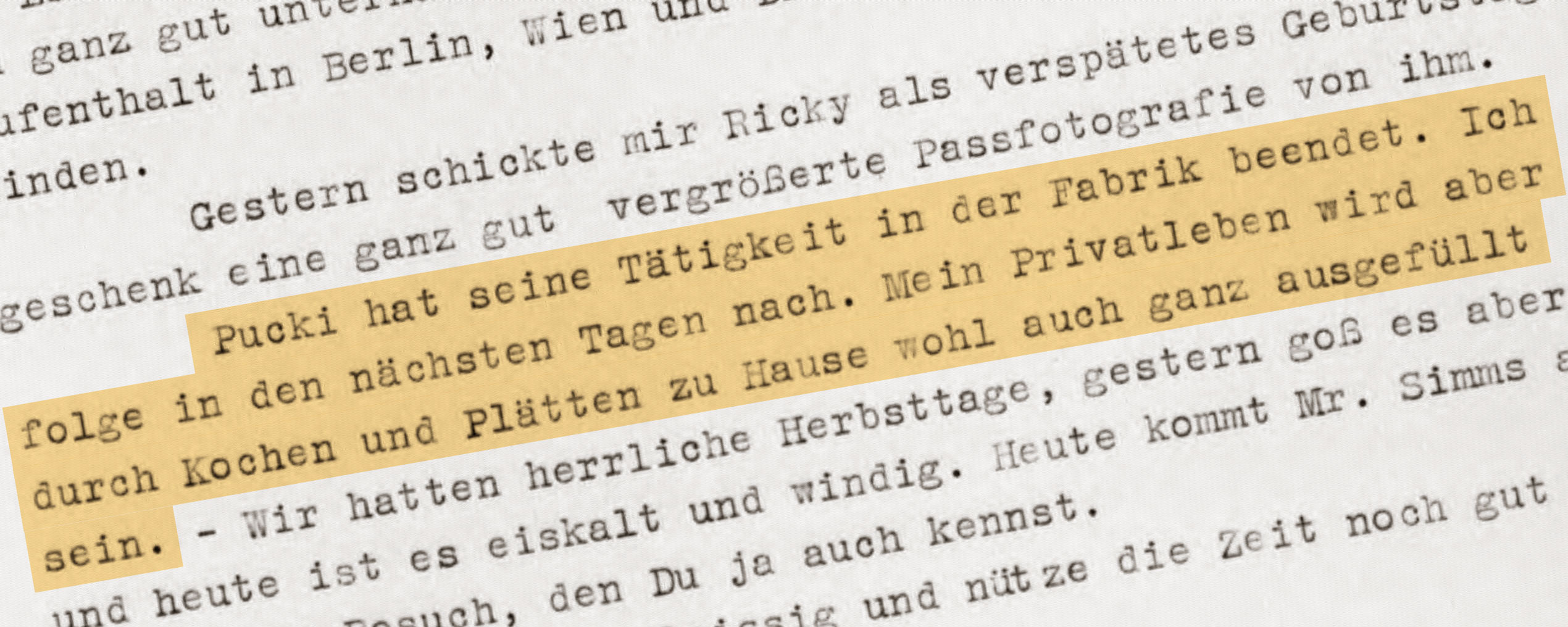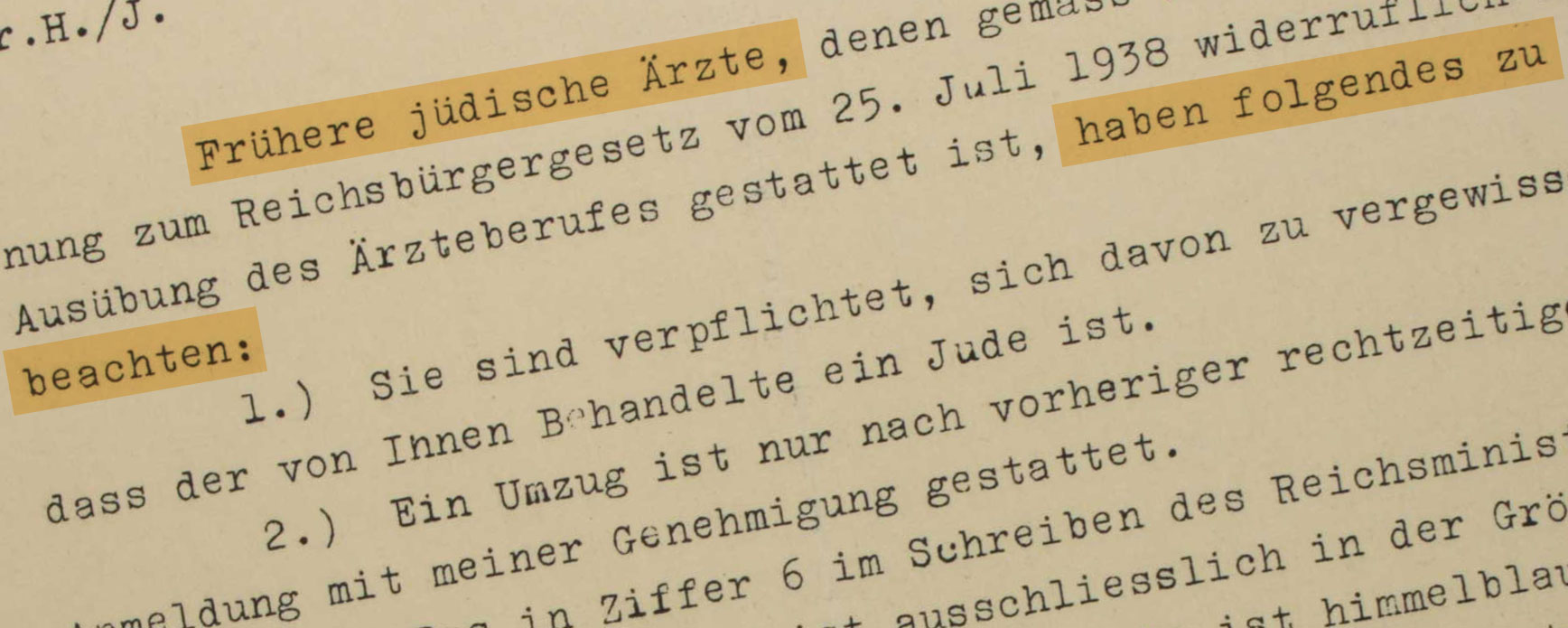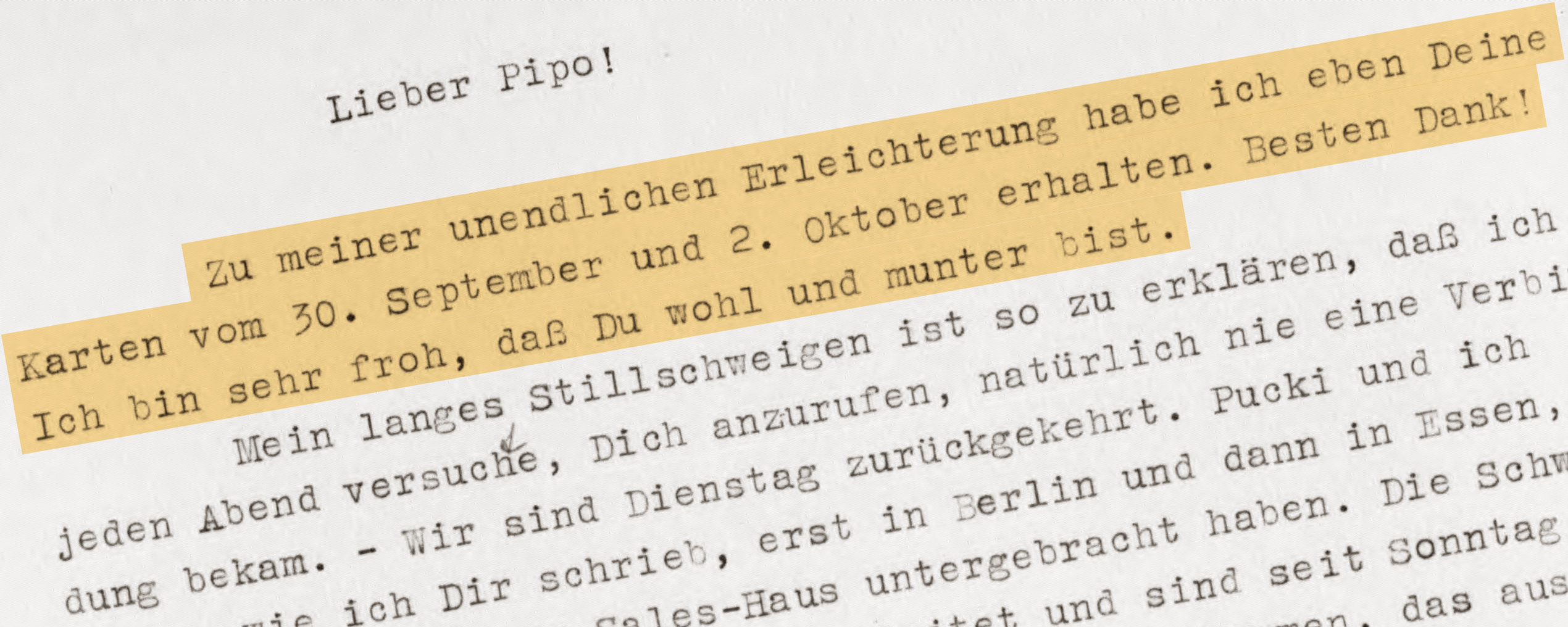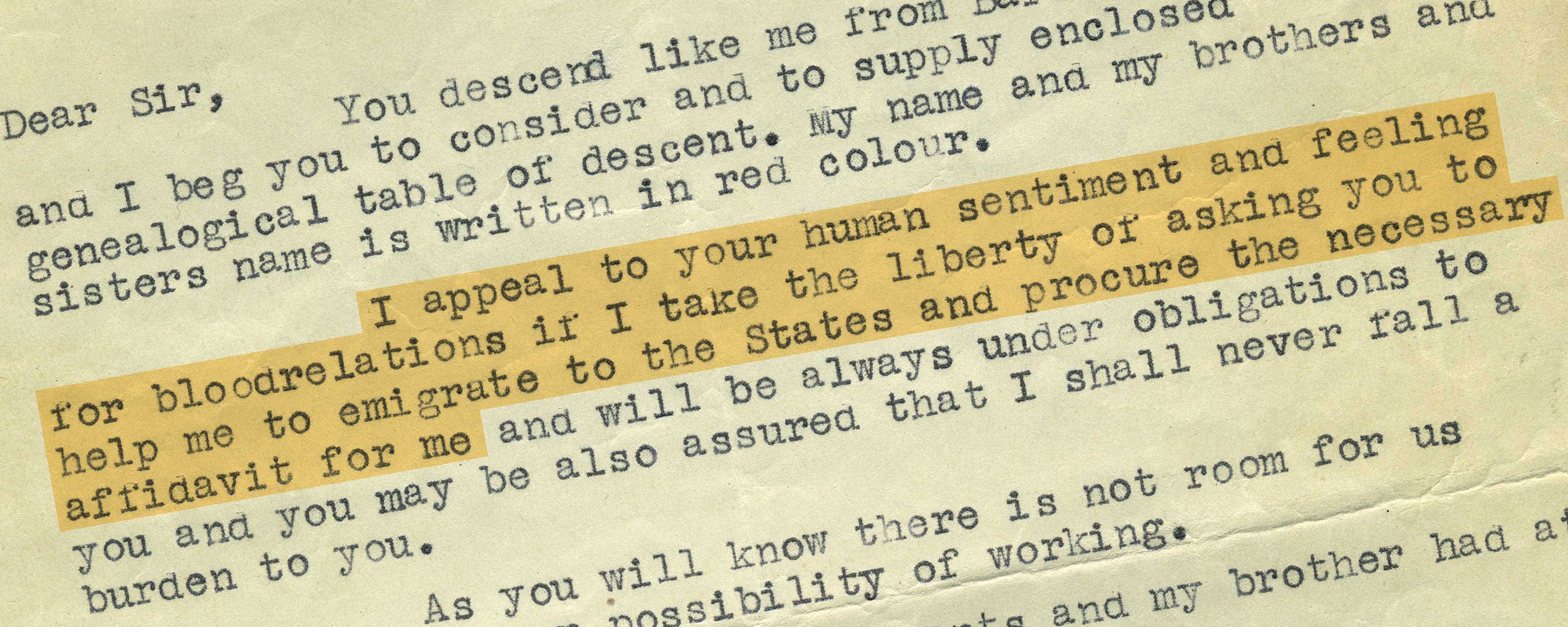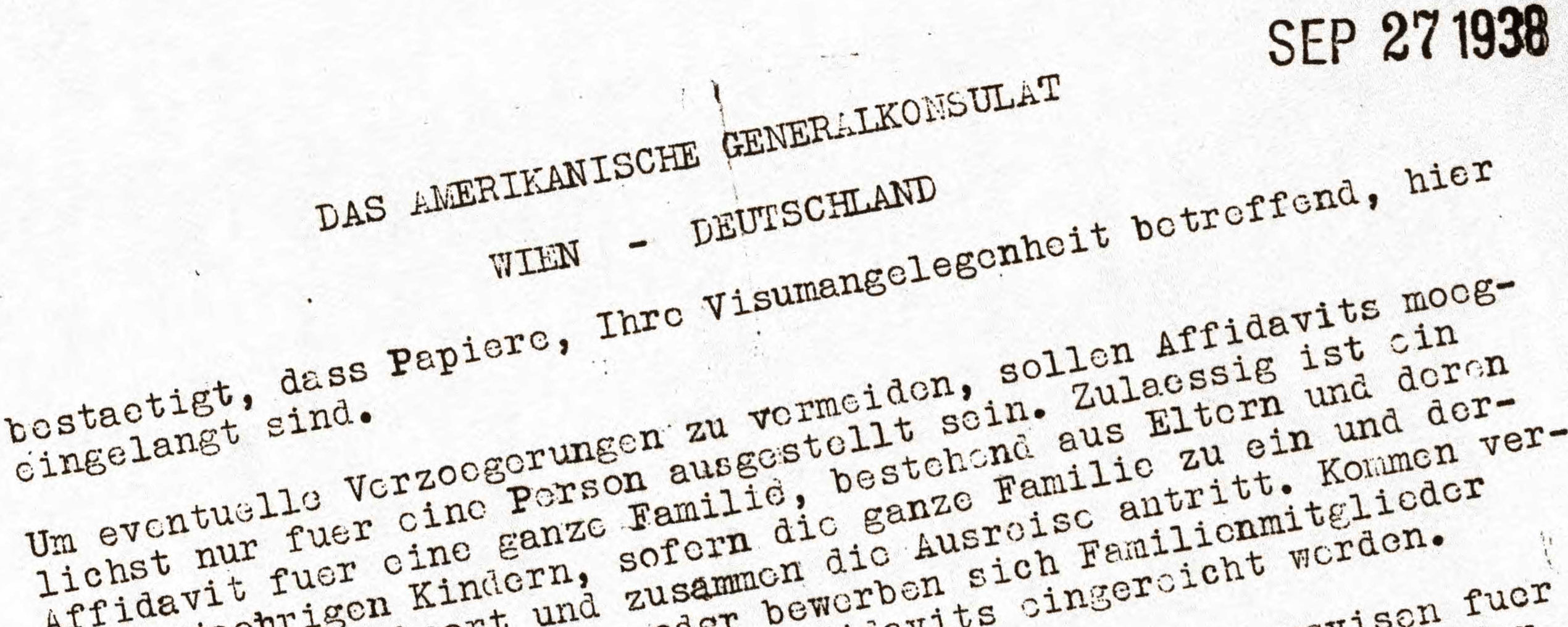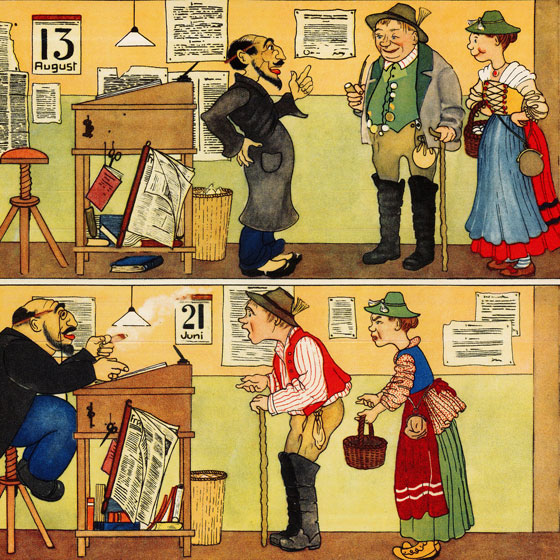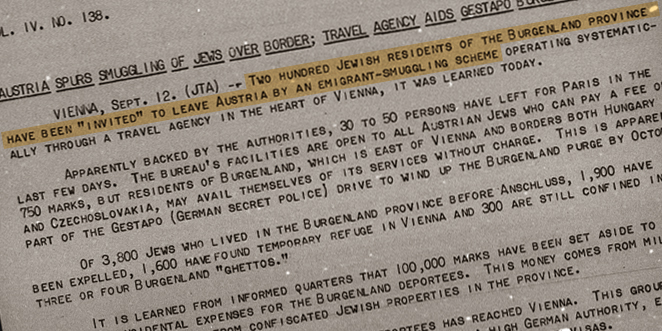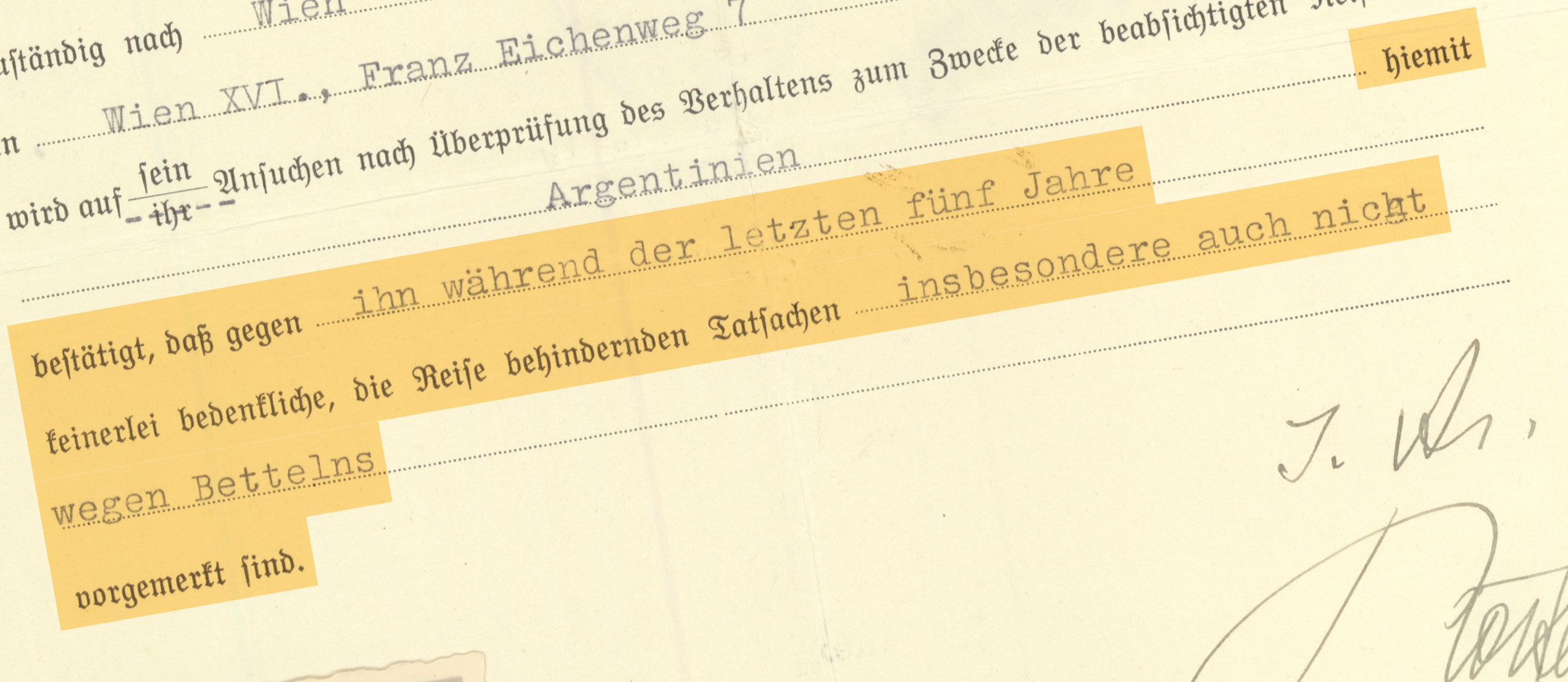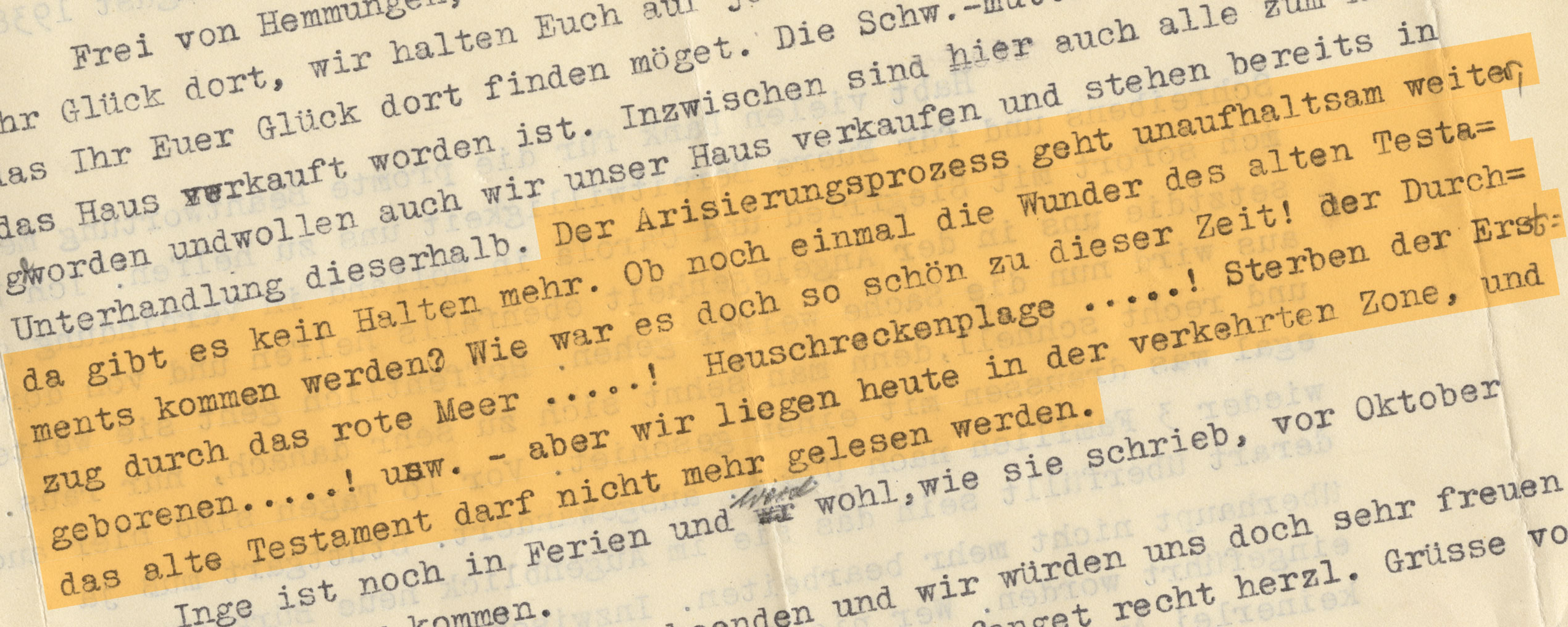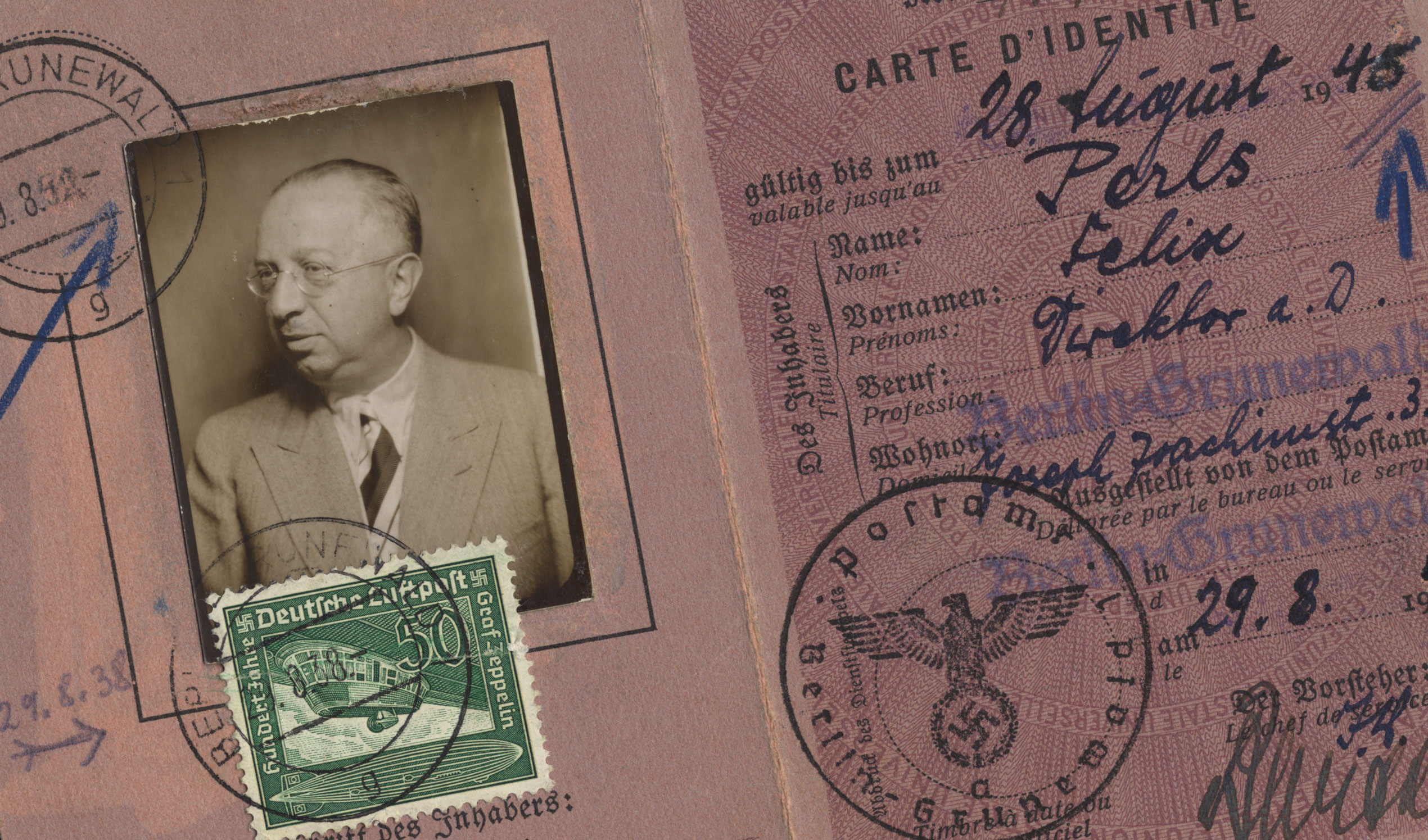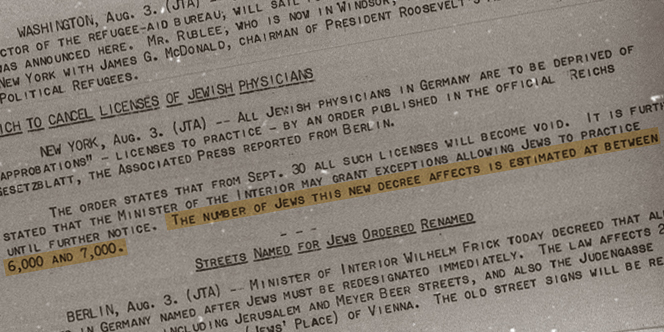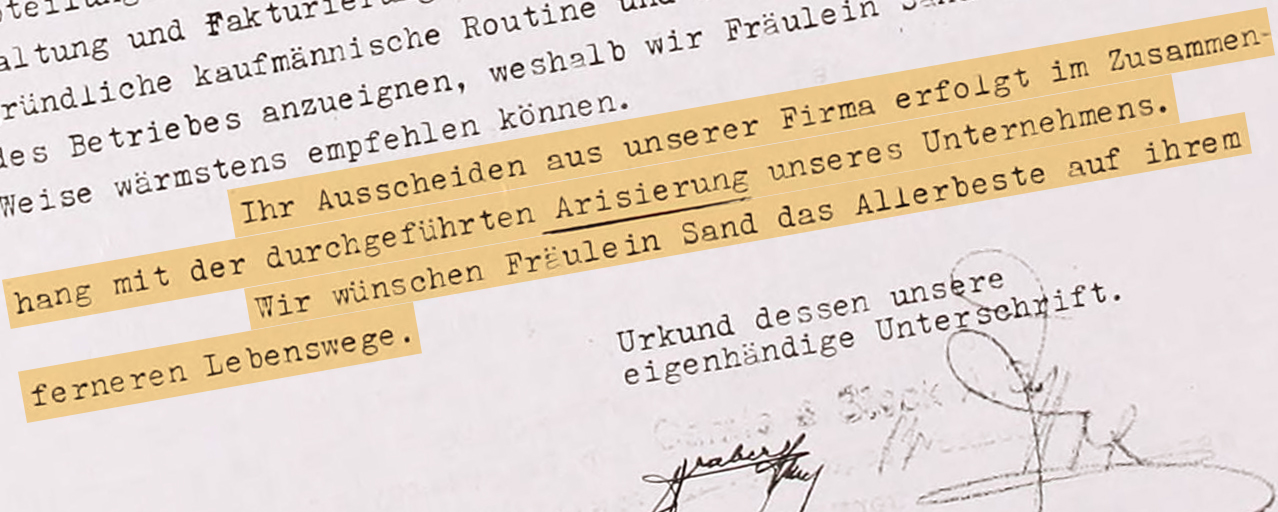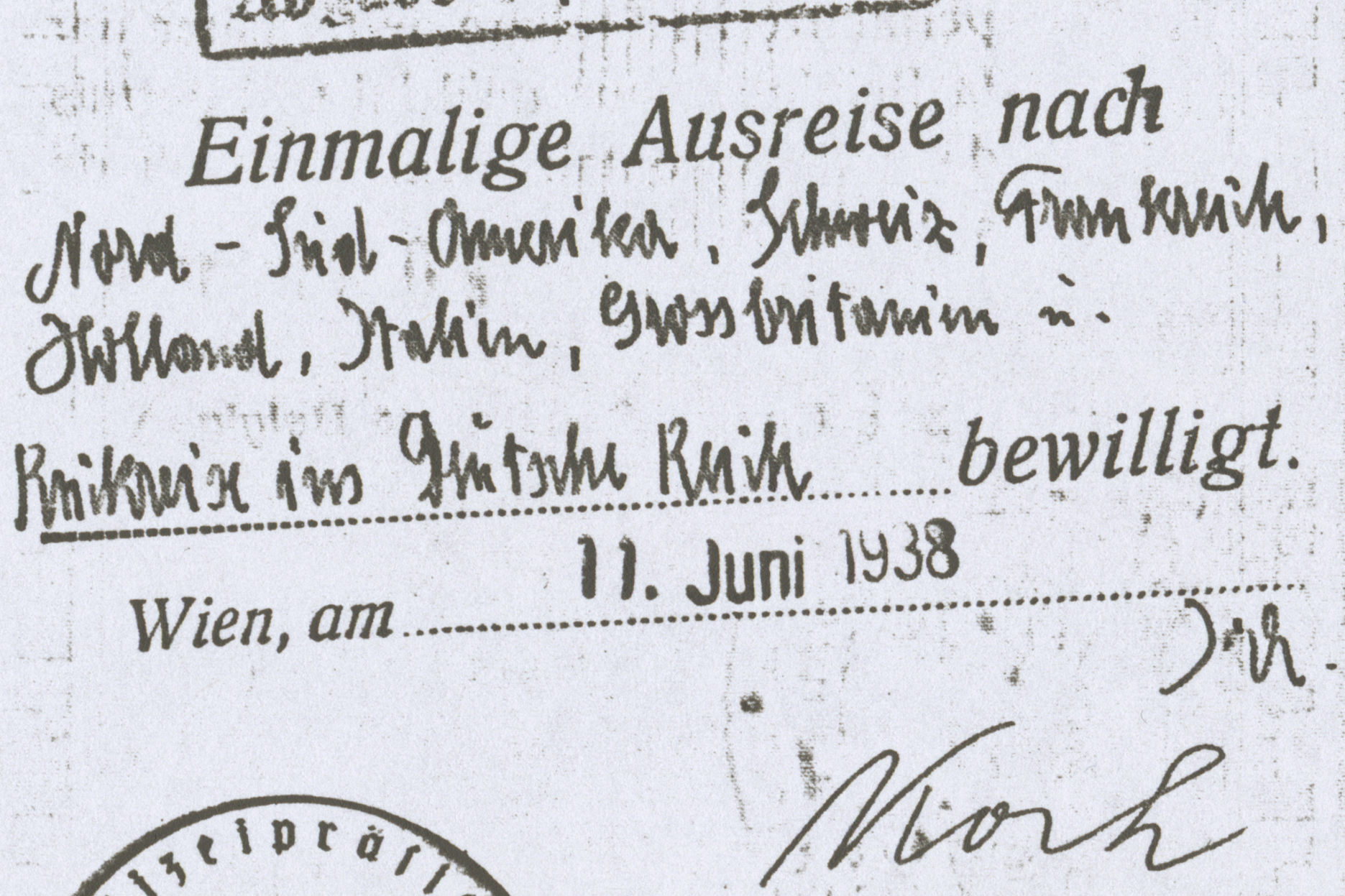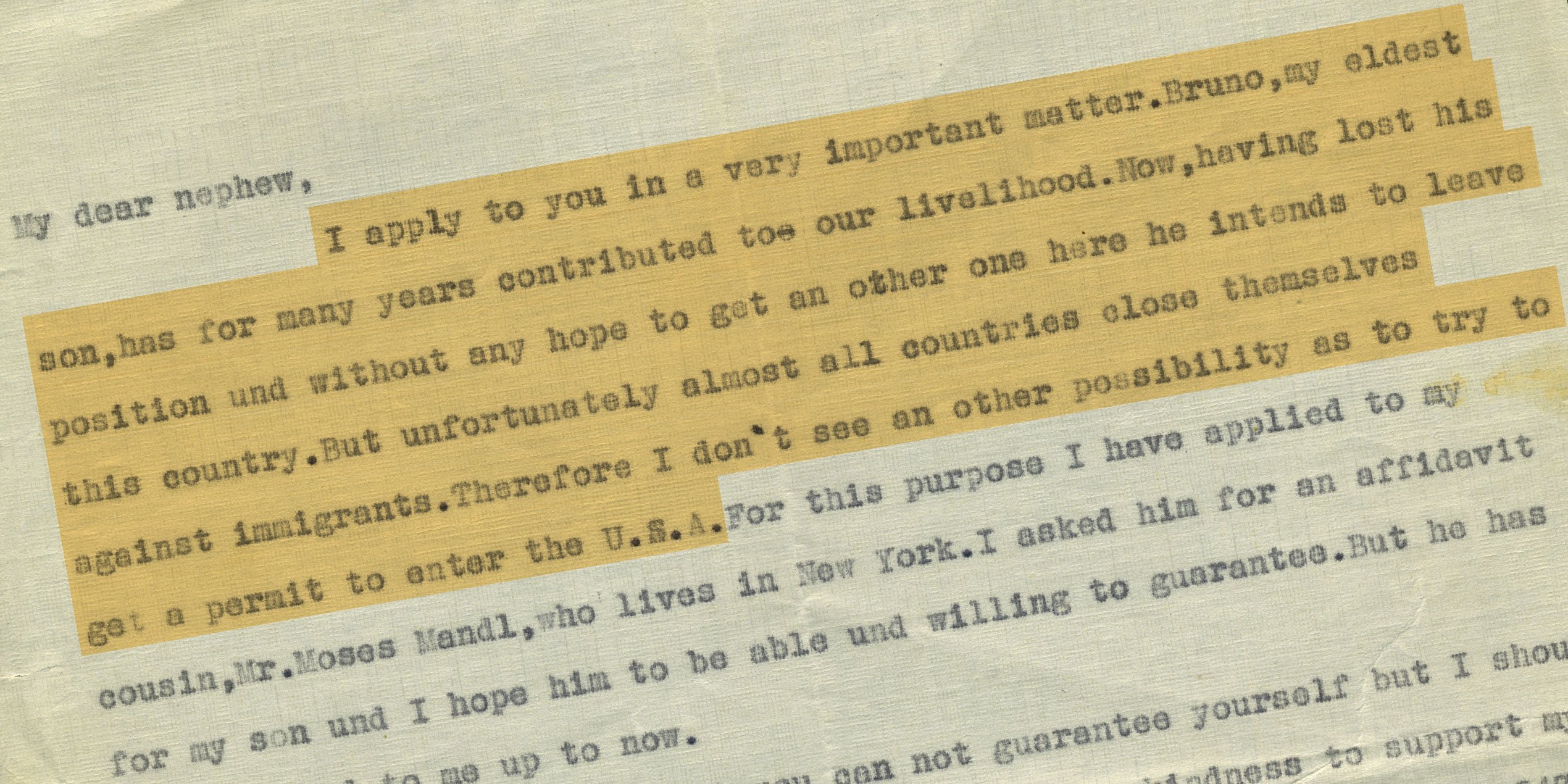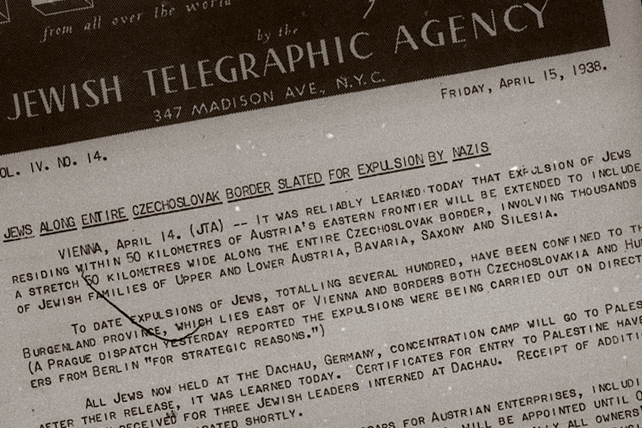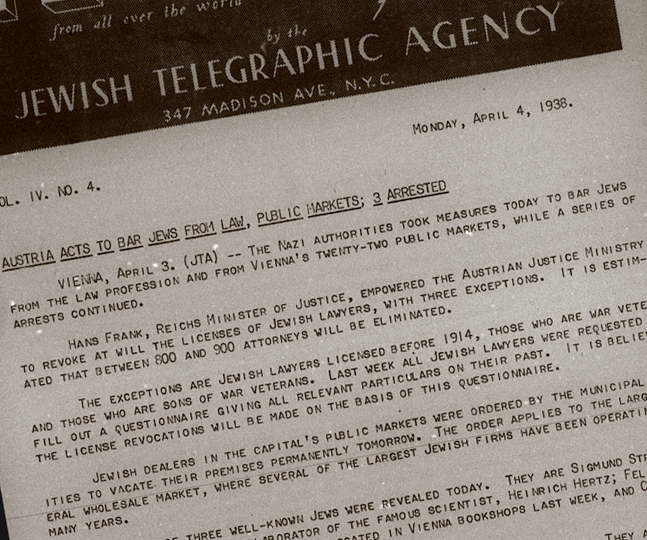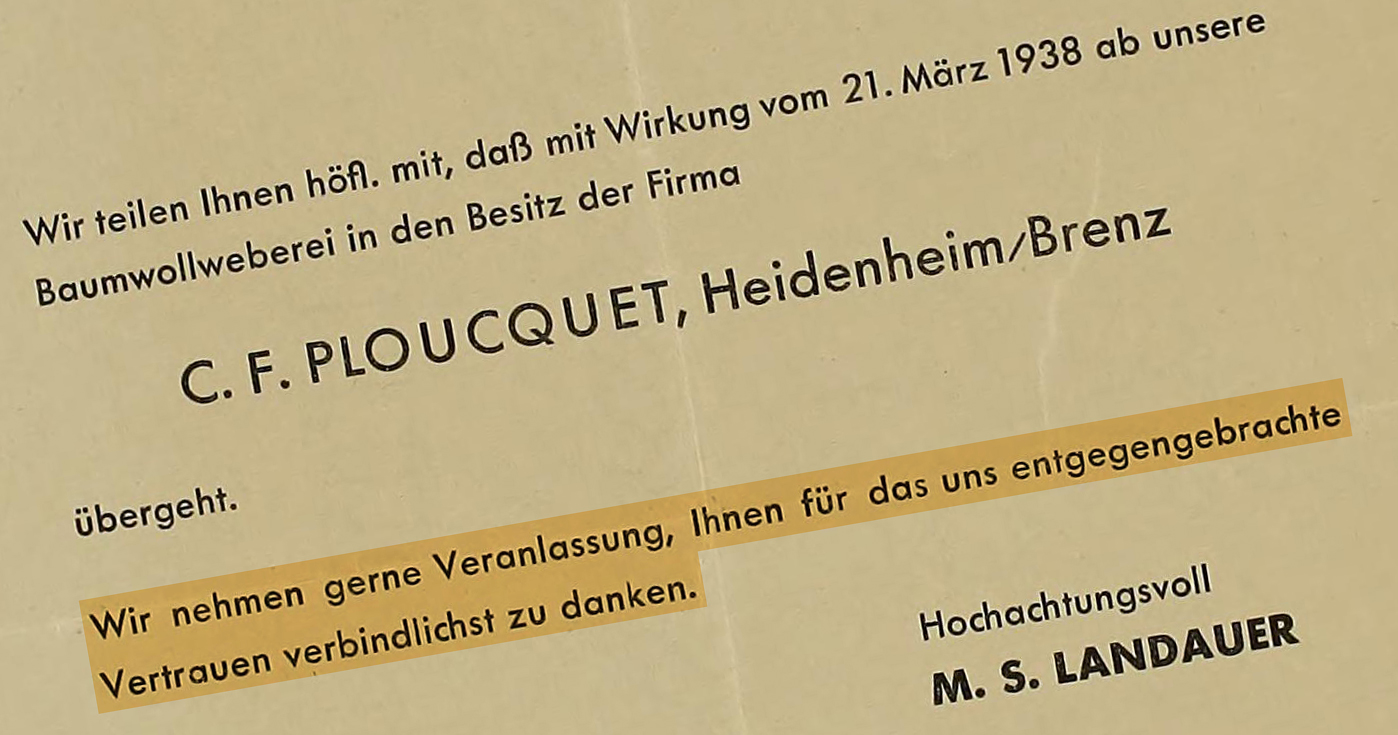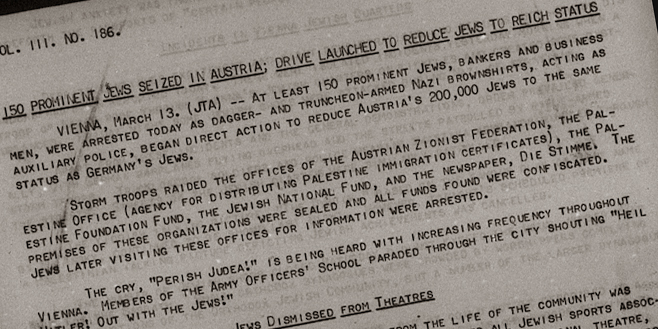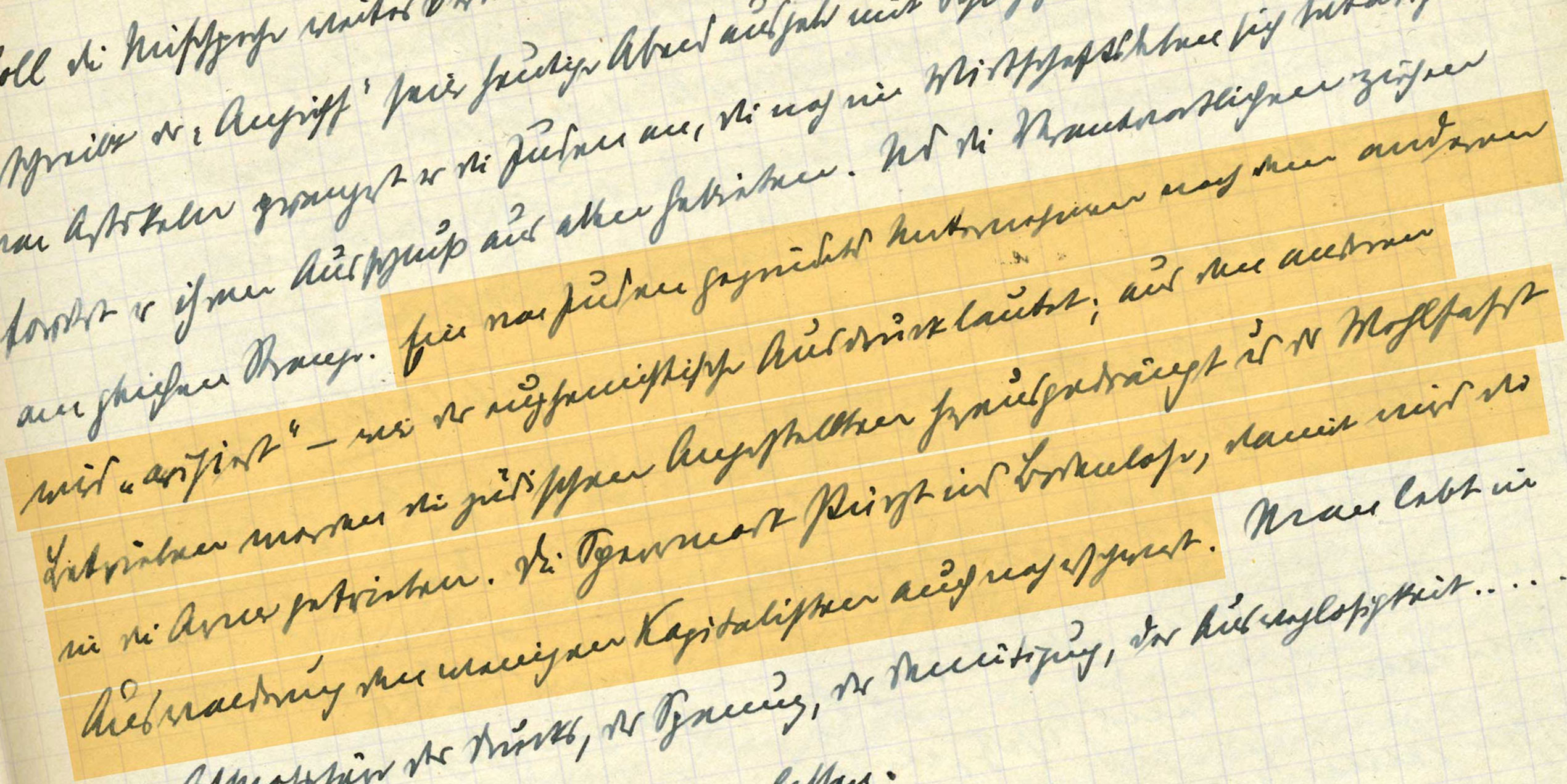Ungrateful fatherland
A former front-line soldier loses his business
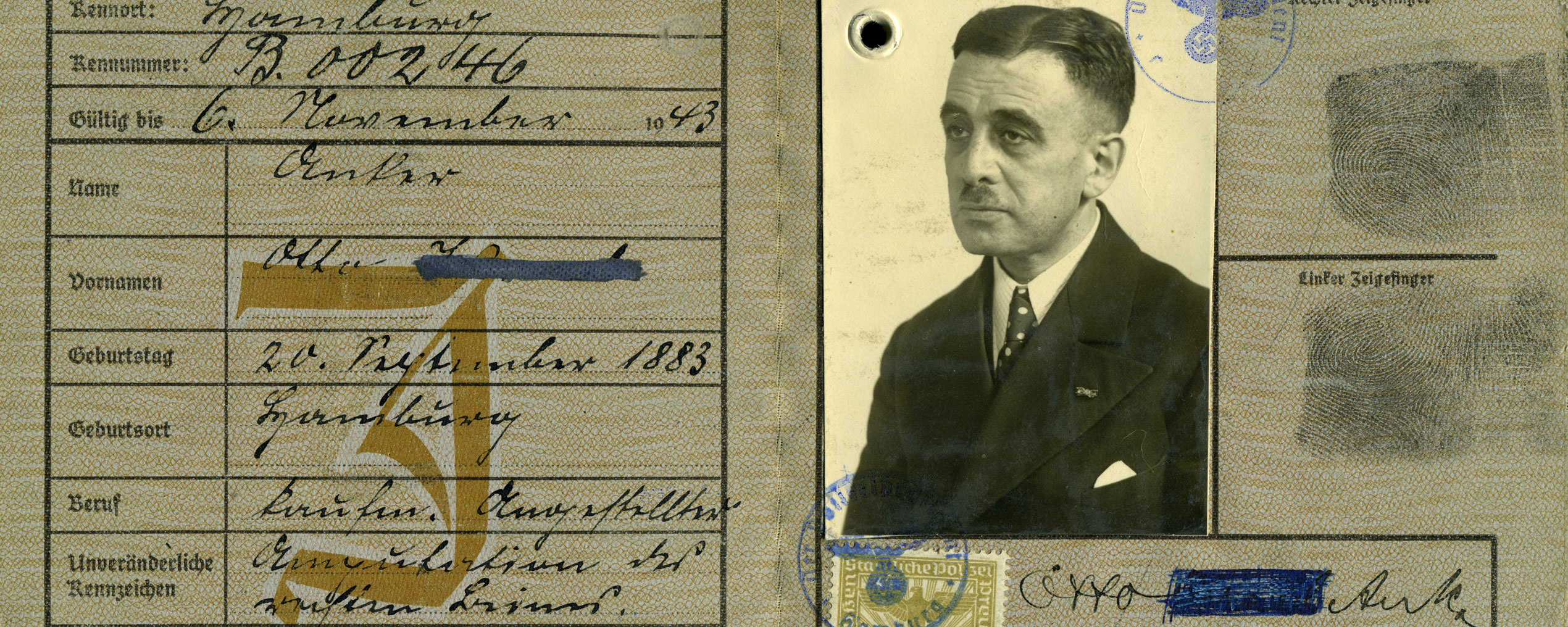
Hamburg
All six sons of the Hamburg industrialist, S. Anker, were among the 85,000 Jewish soldiers who went to battle for Germany in World War I. Two of of them, Heinrich and Richard, belonged to the 457 Hamburg residents among the 12,000 Jewish fallen. Otto Anker, b. 1883, survived, badly wounded. After the Nazis had been voted to power in 1933, his sons left the country and tried to get their parents to do the same. However, decorated with the Iron Cross and married to a non-Jewish woman, Otto Anker felt safe. The gratitude of the Fatherland kept within limits: in 1938, Otto Anker’s business was “aryanized.” This ID, stamped on December 6th, is marked with a conspicuous “J.”
SOURCE
Institution:
Leo Baeck Institute – New York | Berlin 
Collection:
Anker Family Collection, AR 5424 
Original:








































